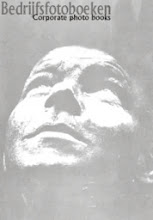Women of Islam
Djebar, Assia; translated by Jean MacGibbon
Magnum. Good. some fraying of plastic finish. 70 p. Includes illustrations. glossy paperback cover; 5" x 6 1/2" A photo-documentary book, originally published in French, with beautiful black and white photographs. This book was produced during an interesting period of time in the treatment and culture of women, their opportunities, expectations, and clothes. The author, Assia Djebar, is one of Algeria's most beloved writers and has long been hailed as one of the most important figures in North African literature. In a career that spans over half a century, Djebar has used her words in the form of poetry, plays, novels, and short stories to convey her experiences growing up in a war-torn country and living as a woman in a world that can at times be unkind. Djebar has also produced two films with the goal of extending her voice to those who cannot read. Pb. Zwarte Beertjes 256/257. Fotoboek. 47 blz. tekst plus 70 blz fotografie
Assia Djebar The fourth language, for all females, young or old, cloistered or half-emancipated, remains that of the body: The body which male neighbors' and cousins' eyes require to be deaf and blind, since they cannot completely incarcerate it, the body which, in trances, dances, or vociferations, in fits of hope and despair, rebels, and unable to read or write, seeks some unknown shore as destination for its message of love.
Assia Djebar speaks about one particular power women have over men in her French novel L’Amour, la fantasia.
Dates: 1936
Country: Algeria
About
Born with the name Fatima-Zohra Imalayen, in 1936 in Cherchell, Algeria, Assia Djebar would become the country’s most distinguished female writer. Through her novels and film Ms. Djebar challenged colonial histories in order to redefine notions of Algerian culture, specifically through the female voice. Ms. Djebar was the first Algerian women to be accepted at the École Normale Supérieure, a prestigious French institute for higher education in Paris. In 1957, she published her first novel La Soif under the pen name Assia Djebar. Between 1957 to 1967 she wrote four novels (La Soif, Les Impatients, Les Enfants du Nouveau Monde, Les Alouettes Naives), which all dealt with the political realities of colonial and post-colonial Algeria.After studying classical Arabic in the 1970s, Djebar has attempted to write in both French and Arabic. When writing in French Ms. Djebar has added sounds and rhythms of the Arabic language and received applause for turning the language of the colonizer, French, into language of resistance. At the University of Algeria, Ms. Djebar taught history and since the 1990s she has been recognized for a number of awards, and she was recently nominated for the Nobel Prize in Literature.
Marc Riboud
Inge Moraf
Frank Horvat
Rene Burri Marc Riboud
Segio Larrain Rene Burri
Sergio Larrain
Henri Cartier-Bresson George Rodger
George Rodger
Elliot Erwitt
Sergio Larrain
Sergio LarrainElliot Erwitt Sergio Larrain
Sergio Larrain
Sergio Larrain
Sergio Larrain
Marc Riboud
Marc Riboud
Marc Riboud
Marc Riboud Henri Cartier-Bresson
Frank Horvat
Marc Riboud
Sergio Larrain
Garofano
Henri Cartier-Bresson








































Geen opmerkingen:
Een reactie posten